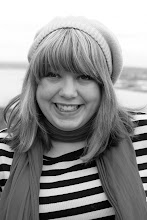I have always been "good"at school. I have a photographic memory and am an auditory learner. I learned to read at age four, because my parents valued literacy. I would read to them and they would read to me. I would read to absorb all the information I could about the world around me, and I would read to propel myself into other worlds entirely.
It's possible that I would have been successful without public education. It's possible. I learned when my third grade teacher made me do worksheets by myself on the floor in the hall, because I was ahead of the other students. I learned on the bus. When the other kids coming in from my "bad" neighborhood were fighting and acting out Jerry Springer in the back of the bus, I sat up front and read my books. I could read information and remember it. I desperately wanted to do well. Most students are not as lucky as I am, in those regards.
More importantly, however, my learning was nourished and nurtured by public education. Through the SAIL program, a classroom made up of the top 1% of 4th and 5th grade students in the district, I was challenged with rigorous curricula and enriched through song and foreign language and dance and performances. Then came SOTA. I did fine in regular school. I would have continued to do fine in regular school, I'm sure; however, SOTA gave me a number of gifts. The first was the ability to learn through interdisciplinary lenses (a skill which would lead me to an interdisciplinary college in the future). At SOTA I learned how to create and to collaborate with my peers. When I entered college, in spite of being a first-generation college student, I felt prepared for my classes and my workload, due to the amount of reading, critical thinking, writing, and discussion which had been integral parts of my time at SOTA. All of these invaluable skills would not have been gained without my access to public education programs.
Last year, I student taught at a school with a high poverty-rate and low parental involvement. The job of a teacher in the public education system is to take students from all walks of life and help them to meet nationwide standards for learning, gain college and career-readiness skills, and, ultimately, to graduate with their diploma. Teachers are charged with bridging the achievement gap between races and classes and filling in deficits in learning for students whose parents are too busy working three jobs to read to their children before bed.
My younger brother, Connor, has severe autism. He is the product of 18 years in the public education system. We grew up poor. There was no way my parents could have afforded a special school for kids with disabilities, let alone the therapies provided to him by the school. He reaped the benefits of having small class sizes, individualized instruction, and paraeducators to assist him one-on-one. I am not saying everything ran smoothly all the time, or that the special education system is perfect. At the district-level, we sometimes had to fight tooth and nail to get Connor's needs met. But there was a place for him to learn, and even to gain skills for the workforce; he received job training during his final years at school.
I teach in the hopes that students like Connor and students like me and every student in between can have their own needs met. Not only do teachers provide academic lessons, they also help students gain life skills, as well as support them emotionally. Sometimes a teacher is the only positive adult influence in a student's life. Very often, that student's family would not have the means to "choose" another school.
The charter system of so-called "choice," provides a business-model and an exercise in capitalism which discounts students as people and teachers as mentors and turns them into commodities to be bought and sold to the highest bidder. Charter schools have no consistent way to vet their teachers or employees, and many administrators of charter schools have no formal training at all. Sending a voucher for a student to a charter school takes money directly away from the trained, vetted, and certificated teachers in the public education system (which eats into funding for books and curricula and supplies and arts and you-name-it), and funnels it into a school which may not benefit the students at all.
Just as students are not commodities, the head of education should not run public education like a business. Someone with no background at the classroom level or administrative level has no idea how public schools work, what they value, or what their goals are. Education is not a for-profit organization. It is not trading stocks or bonds. We are trading the lives and futures of real people.
The appointment of DeVos is appalling. The idea of students losing their opportunities and teachers losing their jobs is fear-inducing. It is easy to feel hopeless or lost or trapped or confused. The future looks scary and sad. Who knows what kind of changes may be thrown our way in the next four years?
My plan in the meantime is to teach until they rip the books out of my hands and tear me away from my students. My plan is to love my students and care for them, because they are people, not commodities, and they matter. My plan is to fight when I can fight and write when I can write and vote when I can vote. My plan is to pay attention.
I will not go into this future blind. I will make a difference. I will fight. Will you?
Tuesday, February 7, 2017
Subscribe to:
Post Comments (Atom)

No comments:
Post a Comment